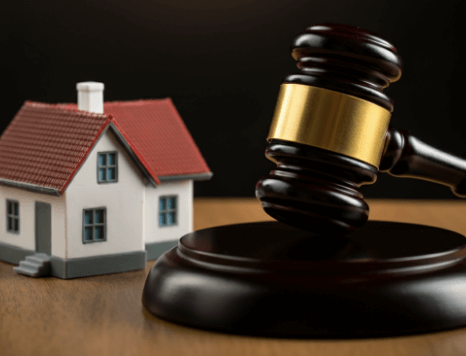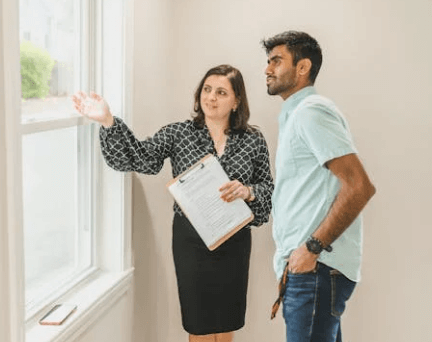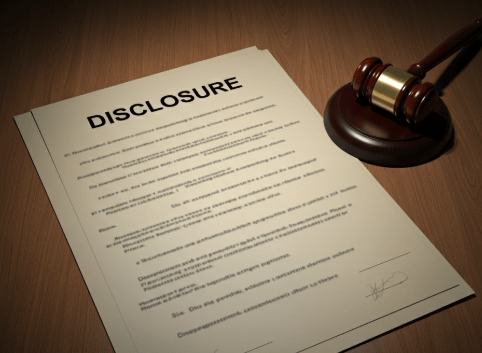Embarking on the path of purchasing or selling a home in Florida involves understanding a complex array of legal requirements, one of the most crucial being the Florida Homeowner Disclosure Law. This legislation is designed to ensure that prospective homebuyers are well-informed about a property’s condition and history before purchasing. This extensive guide will delve into the key aspects of the Florida Homeowner Disclosure Law, including what disclosures are required, the responsibilities of sellers, and how these disclosures protect buyers. Whether you’re a seasoned real estate investor or a first-time homebuyer, gaining a thorough understanding of the Homeowner Disclosure Law in Florida is crucial for informed decision-making and steering clear of possible pitfalls.
Real estate investors Steve Daria and Joleigh emphasize the Florida Homeowner Disclosure Law’s critical role in safeguarding buyers and sellers. They advise that complete transparency is key to maintaining integrity and trust in real estate transactions. By adhering to these disclosure requirements, sellers can avoid legal complications, while buyers can rest assured, having a thorough grasp of the property’s condition, providing them peace of mind.
What is the Florida Homeowner Disclosure Law?
The Florida Homeowner Disclosure Law requires sellers to disclose any known material defects in a property that could affect its value or desirability.
This law protects buyers by ensuring they have all the necessary information to make an informed decision.
The Homeowner Disclosure Law in Florida applies to all residential properties being sold, including single-family homes, condominiums, and townhouses.
However, it does not require sellers to conduct inspections or make repairs before selling their homes.

Why is the Florida Homeowner Disclosure Law Important?
The law provides peace of mind for buyers by ensuring they are fully aware of the property’s condition before purchasing.
For sellers, it fosters transparency and can help prevent future legal disputes.
Real estate agents also benefit by ensuring their clients are well-informed and transactions go smoothly.
Get An Offer Today, Sell In A Matter Of Days
Key Areas Covered by the Homeowner Disclosure Law in Florida
This section delves into the critical aspects and specific requirements of the Homeowner Disclosure Law in Florida.
Understanding these key areas will help homeowners and real estate agents remain compliant and informed throughout their transactions.
Material Defects
A material defect is any issue that significantly affects the property’s value, desirability, or safety. Common examples include:
- Structural damage
- Roof leaks
- Plumbing or electrical issues
- Termite infestations
- Mold problems
Environmental Hazards
Sellers must disclose known environmental hazards such as:
- Asbestos
- Lead-based paint
- Radon gas
- Contaminated soil or groundwater
Legal Disclosures
The law also requires disclosure of any legal issues affecting the property, such as:
- Zoning violations
- Pending litigation
- Easements and encroachments
- Homeowners’ Association (HOA) rules and fees
How to Comply with the Homeowner Disclosure Law in Florida
This section delineates crucial steps and optimal practices for ensuring compliance with the Homeowner Disclosure Law in Florida.
Following these guidelines will help homeowners and real estate professionals avoid legal pitfalls and maintain transparency in their transactions.
Use a Standard Disclosure Form
While Florida does not mandate a specific form, a standard disclosure form like the Florida Realtors Sellers Property Disclosure Statement can ensure you cover all necessary areas.
This form outlines potential issues or defects with the property that the seller is aware of, such as structural or environmental concerns.
It also asks about any major renovations or improvements made to the property.
Be Honest and Thorough
Sellers should be honest and thorough in disclosing any known defects.
Failure to disclose known issues may result in legal repercussions and damage your reputation.
It is important to remember that buyers have the right to know about any potential problems before making a purchase.
It is better to be upfront and transparent than to try and hide or downplay any issues.
Conduct a Pre-Listing Inspection
Before listing your property for sale, it’s advisable to engage a professional inspector to uncover any potential issues.
This preemptive step can help address problems early and avoid surprises during the transaction process.

Document Everything
Maintain meticulous documentation of all disclosures, inspections, and repairs.
This documentation can prove invaluable if any disputes arise later.
Tips for Real Estate Agents
In this section, we offer practical advice for real estate agents operating within the framework of the Homeowner Disclosure Law in Florida.
These tips help agents ensure compliance and effectively communicate important disclosure information to their clients.
Educate Your Clients
Help your clients grasp the significance of the Homeowner Disclosure Law and the consequences of non-compliance.
Verify Disclosures
Cross-check disclosures with property inspections to ensure accuracy and completeness.
Stay Updated
Laws and regulations are subject to change; therefore, it is crucial to stay informed about any Homeowner Disclosure Law updates to provide the best advice to your clients.
Frequently Asked Questions
This section addresses common queries regarding the Homeowner Disclosure Law in Florida.
We aim to offer precise and easily understandable responses to assist you in navigating the intricacies of this significant regulation.
Do I have to disclose issues I fixed?
Yes, even if you’ve repaired a known defect, you must disclose it.
Buyers have the right to know the property’s history.
What happens if I don’t disclose a defect?
Failure to disclose known defects may lead to legal consequences from the buyer.
They may seek to rescind the sale or sue for damages.
Can a buyer waive their right to disclosure?
No, the Florida Homeowner Disclosure Law protects buyers’ rights, and they cannot waive their right to receive disclosures.
Are foreclosed properties exempt from disclosure requirements?
No, even foreclosed properties are subject to the Florida Homeowner Disclosure Law.
However, banks and financial institutions selling foreclosed properties may need more knowledge of the property’s condition.
Conclusion
Understanding and complying with the Florida Homeowner Disclosure Law is essential for all parties involved in real estate transactions. By being honest, thorough, and proactive, you can ensure a smooth, transparent process protecting buyers and sellers. For more information and expert advice, consider consulting with a real estate attorney or trusted agent familiar with Florida’s real estate laws.
**NOTICE: Please note that the content presented in this post is intended solely for informational and educational purposes. It should not be construed as legal or financial advice or relied upon as a replacement for consultation with a qualified attorney or CPA. For specific guidance on legal or financial matters, readers are encouraged to seek professional assistance from an attorney, CPA, or other appropriate professional regarding the subject matter.

